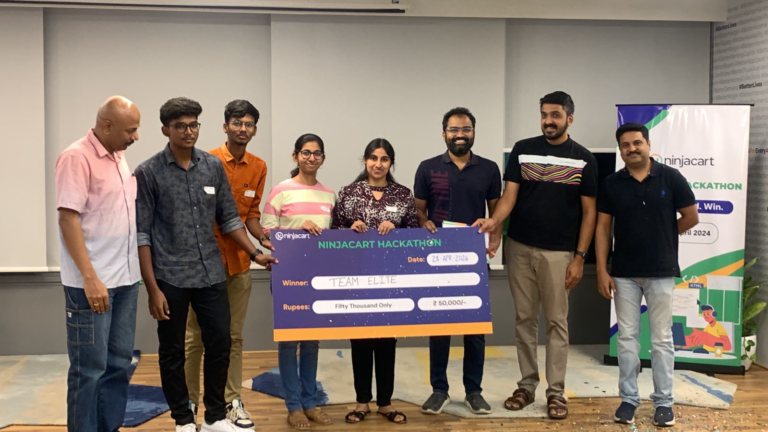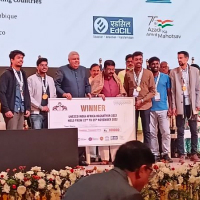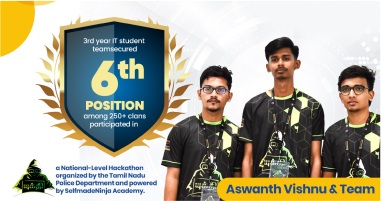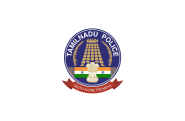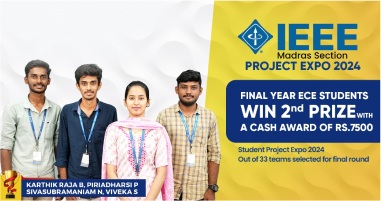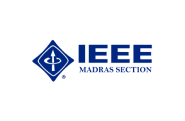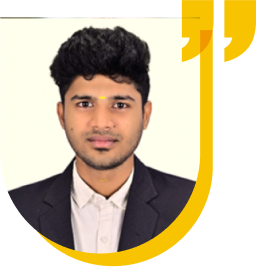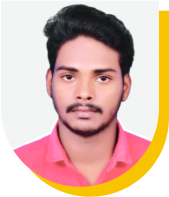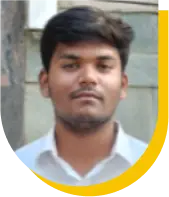COMPUTER & COMMUNICATION ENGINEERING
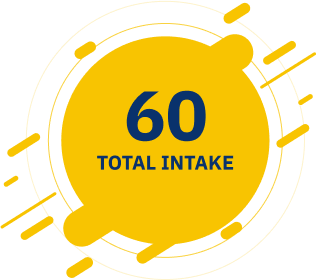
HIGHEST SALARY PACKAGE
NO OF RECRUITERS
TOTAL PUBLICATIONS
INTERNSHIP OPPORTUNITIES
PROGRAMME SCOPE
The Program of Computer & Communication Engineering at Sri Eshwar offers the students with an excellent combination of electronics & communication engineering and software.
This dual advantage expands the scope of career progression for the students in electronics, communication and IT companies.
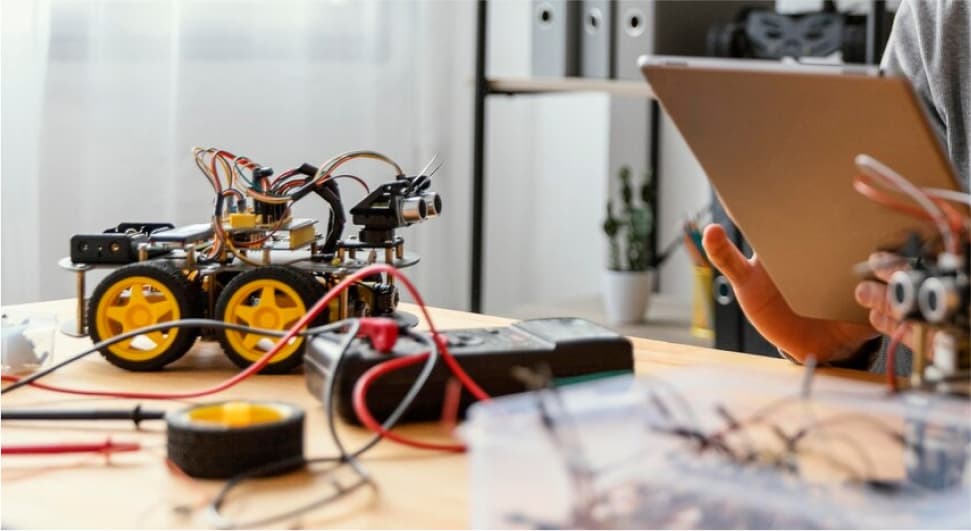

LEARNING SCOPE
The curriculum of CCE imparts the strong fundamental knowledge on electronic courses including Digital systems, Communication Technologies, Embedded Systems, and IoT, and on computer related courses like C, Data Structures, Python & Java programming, Data base management systems, Object Oriented Programming, Networking & Cybersecurity, Web & Mobile application Development.
CAREER PROGRESSION

VISION
MISSION
To offer high-quality engineering education emphasizing practical outcomes.
To foster innovative research and project development among students and instil a sense of social responsibility.
To equip students with industry-relevant skills and robust leadership qualities through pedagogical methodologies and industry engagement.
To inculcate a culture of socially relevant values and nurture moral, ethical, and interpersonal skills among students.
PROGRAMME DETAILS
- PEO1: Acquire core competencies in computational technologies and communication engineering with the ability to utilise the latest software tools to effectively address real time challenges.
- PEO2: Active involvement in research, innovation, or entrepreneurial ventures, resulting in significant societal contributions.
- PEO3: Demonstrate industry-relevant skills, effective leadership qualities, and strong ethical values to exhibit professionalism and foster collaborative work experience.
- PO1: Engineering Knowledge: Apply the knowledge of mathematics, science, engineering fundamentals, and an engineering specialization to the solution of complex engineering problems.
- PO2: Problem Analysis: Identify, formulate, review research literature, and analyze complex engineering problems reaching substantiated conclusions using first principles of mathematics, natural sciences, and engineering sciences.
- PO3: Design / Development of solutions: Design solutions for complex engineering problems and design system components or processes that meet the specified needs with appropriate consideration for the public health and safety, and the cultural, societal, and environmental considerations.
- PO4: Conduct Investigations of Complex problems: Use research-based knowledge and research methods including design of experiments, analysis and interpretation of data, and synthesis of the information to provide valid conclusions.
- PO5: Modern Tool Usage: Create, select, and apply appropriate techniques, resources, and modern engineering and IT tools including prediction and modeling to complex engineering activities with an understanding of the limitations.
- PO6: The Engineer Society: Apply reasoning informed by the contextual knowledge to assess societal, health, safety, legal and cultural issues and the consequent responsibilities relevant to the professional engineering practice.
- PO7: Environment and Sustainability: Understand the impact of the professional engineering solutions in societal and environmental contexts, and demonstrate the knowledge of, and need for sustainable development.
- PO8: Ethics: Apply ethical principles and commit to professional ethics and responsibilities and norms of the engineering practice.
- PO9: Individual and Teamwork: Function effectively as an individual, and as a member or leader in diverse teams, and in multidisciplinary settings.
- PO10: Communication: Communicate effectively on complex engineering activities with the engineering community and with society at large, such as, being able to comprehend and write effective reports and design documentation, make effective presentations, and give and receive clear instructions.
- PO11: Project Management and Finance: Demonstrate knowledge and understanding of the engineering and management principles and apply these to one’s own work, as a member and leader in a team, to manage projects and in multidisciplinary environments.
- PO12: Life Long Learning: Recognize the need for, and have the preparation and ability to engage in independent and life-long learning in the broadest context of technological change.
- PSO1: Apply the concepts of computer and communication systems to develop software for different applications.
- PSO2: Acquire skills and knowledge to solve real time challenges in communication networks.
Corporate ADVISORY BOARD
The Corporate Advisory board provides guidance and strategic input for curriculum development.
Dr.Shriram K Vasudevan

Dr.T.Anbalagan

Mr.R.Vigneshwaran

ENHANCED LEARNING
LABS
- Database Management Systems Laboratory
- Design and Analysis of Algorithms Laboratory
- Digital Electronics Laboratory
- Full Stack Development Laboratory
- Digital Signal Processing Laboratory
- Artificial Intelligence and Machine Learning Laboratory
- Cyber Security Laboratory
- Wireless Communication Lab
COES
- COE in Cybersecurity
- COE in Advances in Signal Processing and Sensor Networks
- COE in UI/UX Design Studio
VALUE ADDED COURSES
- Mastering Digital Defense
- Applied Machine Learning with Python
- Exploring Data Dynamics
- Advanced Embedded Systems and IoT Applications
- Mastering Web Technologies
- Future networks: 5G and Beyond
INNOVATIVE TEACHING
- Scratch Based Gamified Programming
- Flipped Classroom using GCR/MOODLE
- Quiz using Mentimeter
- Programming using coding platforms
- Reflective Learning
- Collaborative Learning through Co-Lab
- Gamified Learning Using Blockly
Head of the department
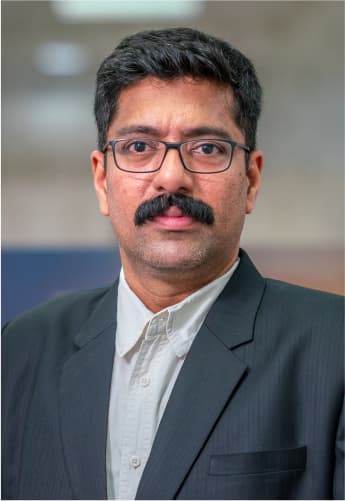
Dr.C.Vivek
FACULTY MEMBERS

Dr.C.Ganesh
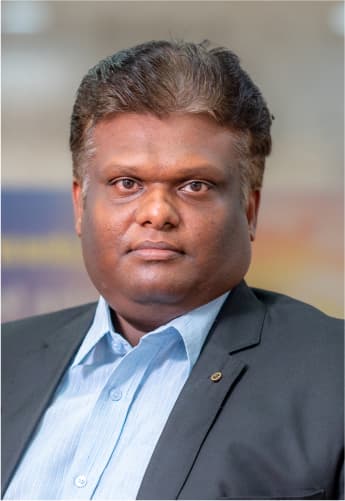
Dr.S.Dhamodharan
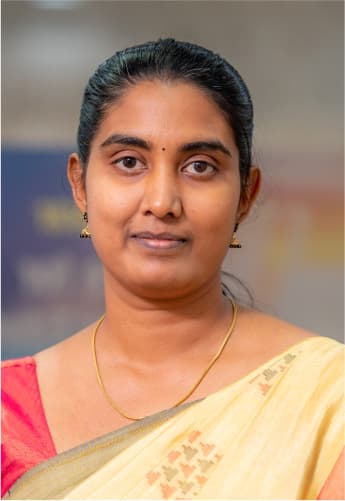
Dr.R.Babitha Lincy

Dr.R.R.Thirrunavukkarasu
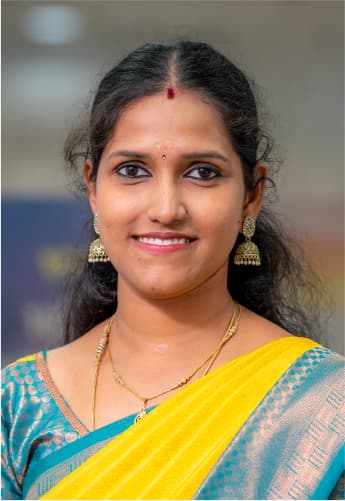
Ms.G.G.Sreeja

Ms.G.Dency Flora
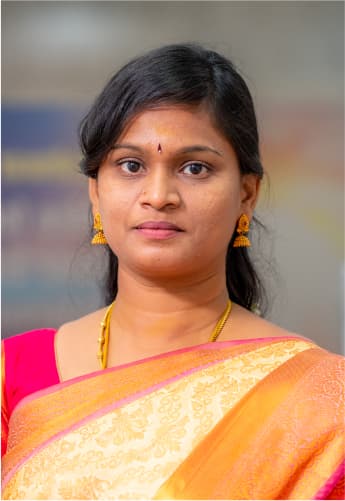
Ms.R.Megala
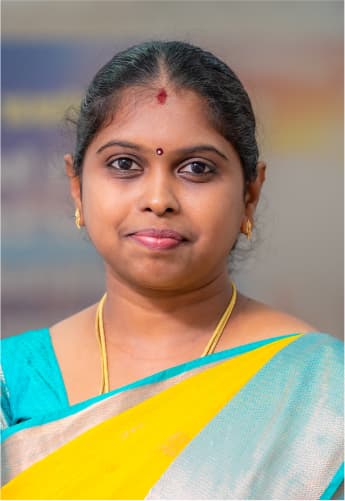
Ms.N.Banupriya
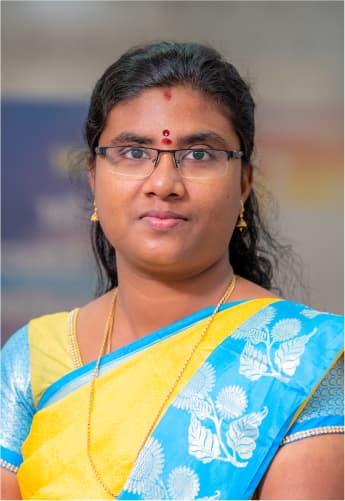
Ms.P.Megala
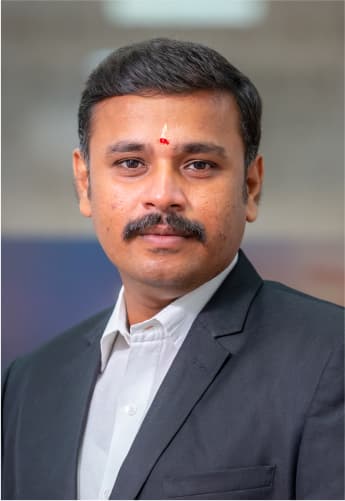
Mr.R.Arun

Ms.R.Sangeetha
RESEARCH
Sri Eshwar encourages members of faculty to seek support and secure research funds from industry and various funding agencies such as DST, AICTE, TNSCCT, MHRD, CSIR, DRDO, ISTE, Industry etc to develop research facility and to carry out research projects. The Institute also supports by sponsoring seed fund to the departments to set up research laboratories and promote research.
AU APPROVED
RESEARCH
supervisors
research
facilities
Publications
patents
research
grants &
seed funds
consultancy projects
INDUSTRY COLLABORATION
Sri Eshwar encourages members of faculty to seek support and secure research funds from industry and various funding agencies such as DST, AICTE, TNSCCT, MHRD, CSIR, DRDO, ISTE, Industry etc to develop research facility and to carry out research projects. The Institute also supports by sponsoring seed fund to the departments to set up research laboratories and promote research.
mous
industry
visits
internships
coe
activities
projects
AWARDS AND ACHIEVEMENTS
RECRUITERS












ALUMINI TESTIMONIALS
The Department of Computer and Communication Engineering has equipped me with both theoretical knowledge and practical skills, preparing me for real-world challenges in the tech industry. The supportive faculty and hands-on projects fostered an environment where I could thrive and innovate. Proud to be a graduate of such a dynamic and forward-thinking department.
R.Hari Nikesh
2022-23 Batch, Quinbay Technologies
Entering the tech industry was a dream, and thanks to the CCE department, it's now a reality in a top-tier company. The cutting-edge courses and hands-on experiences shaped me into a versatile professional, ready to tackle any challenge. Gratitude to the department for sculpting not just my skills, but my career path with finesse.
M.Parthipan
2024, Lending Kart
The journey from student to professional was seamlessly guided by our department. With their innovative curriculum and industry connections, landing a position in a leading company felt like a natural progression. Their dedication to nurturing talent and fostering a dynamic learning environment has truly set the stage for my flourishing career.
K.Mohammed Rayon
2025, Akaike Technologies
CCE OFFICE
Sangeetha.S / +91 04259 200 399
Kondampatti [Post], Vadasithur (via),
Coimbatore – 641 202, Tamil Nadu, India
Email: [email protected]



